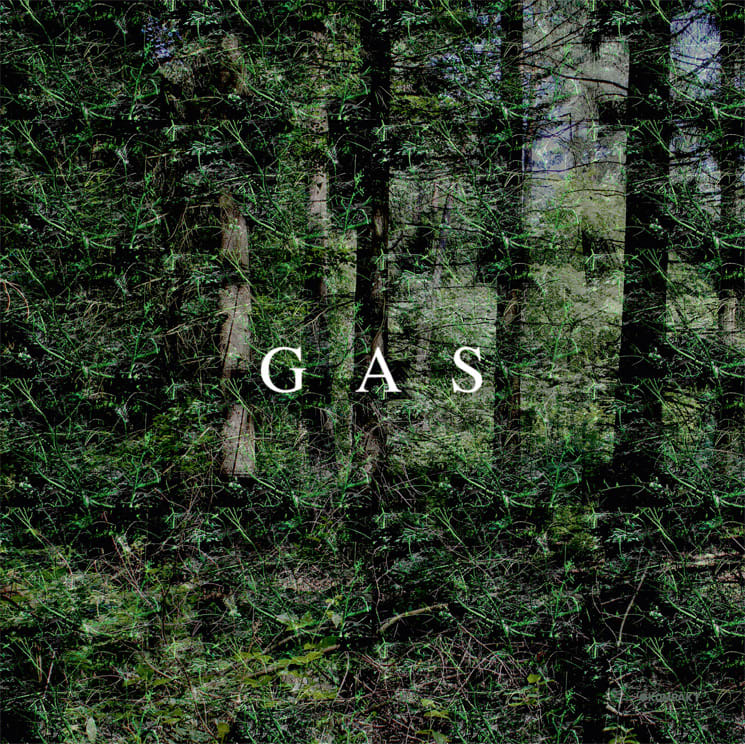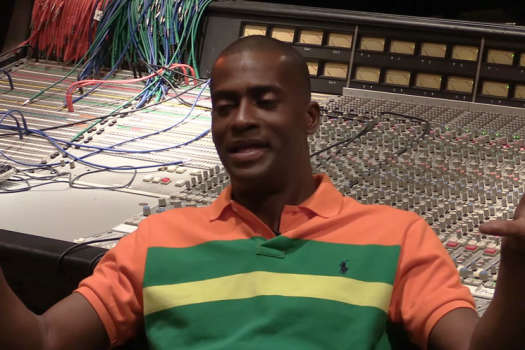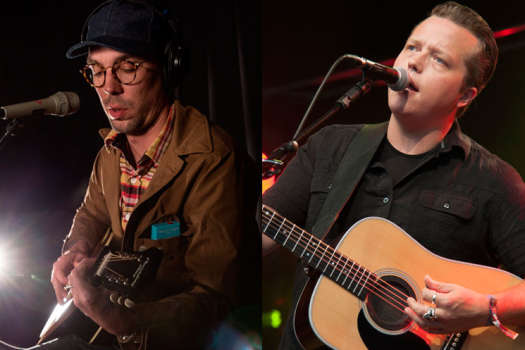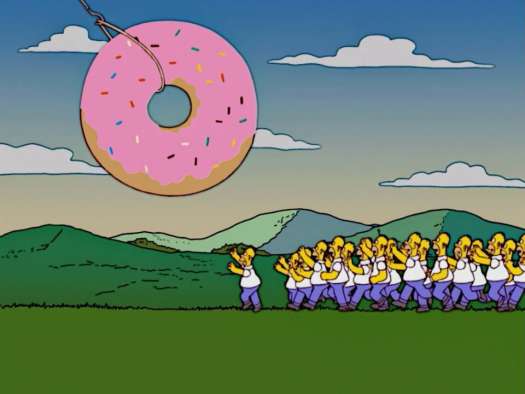Wolfgang Voigt has donned many hats in his long and storied career. GAS, his most recognizable moniker, has a legendary rep in the annals of electronic music history. Composed of a palette of subtly looping textures and deep kick drums, GAS's sound was an innovation and a refinement for minimal techno and ambient music. Now, 22 years on from his GAS debut, Voigt delivers Rausch.
Just a year on from his 17-year-hiatus-breaking Narkopop, Rausch continues in a similar sonic headspace. Designed to be listened to as a continuous, hour-long session, the album can be a daunting listen. Cryptically, the album is delivered with an accompanied poem that references Beethoven, Depeche Mode and Pink Floyd. If read alongside the listening experience, the obscurity yields to a sliver of clarity.
Beginning ominously, in the section that we'll describe as "Rausch 1," Voigt conducts an orchestra of sparse, ping-pong delay percussion and Wagner-esque orchestral arrangements. A kick drum eventually emerges at a marching-band pace at around nine minutes ("Rausch 2"). "Horns and fanfares / Fanfares of joy / Fanfares of fear" describes the accompanying poem, and the music follows suit. Resampled string and horn arrangements shift timbre, with an impressionistic quality to move from hope and desperation, then back again.
At this point, compared to previous works, it is clear that there is a certain distinction in Voigt's compositional approach. Where on Pop, Voigt may have been an obsessive calligrapher in his sonic spectrum, Rausch follows suit to Narkopop's broad strokes of sound and texture. This can be less rewarding; where slow progressions were previously detailed and engaging, they can now feel encumbered. At the halfway point, a desperate weightlessness takes hold, setting up the denouement that is embellished by light strumming. Eventually, Rausch ends by resolving on a major chord, after an extended period of dire premonition.
Compared to Wolfgang Voigt's heyday, Rausch can feel a bit a like a protracted misstep. Although GAS's sound starts to sound a bit dated, Voigt can still be applauded for his approach to storytelling and patience in constructing his electro-orchestral worlds.
(Kompakt)Just a year on from his 17-year-hiatus-breaking Narkopop, Rausch continues in a similar sonic headspace. Designed to be listened to as a continuous, hour-long session, the album can be a daunting listen. Cryptically, the album is delivered with an accompanied poem that references Beethoven, Depeche Mode and Pink Floyd. If read alongside the listening experience, the obscurity yields to a sliver of clarity.
Beginning ominously, in the section that we'll describe as "Rausch 1," Voigt conducts an orchestra of sparse, ping-pong delay percussion and Wagner-esque orchestral arrangements. A kick drum eventually emerges at a marching-band pace at around nine minutes ("Rausch 2"). "Horns and fanfares / Fanfares of joy / Fanfares of fear" describes the accompanying poem, and the music follows suit. Resampled string and horn arrangements shift timbre, with an impressionistic quality to move from hope and desperation, then back again.
At this point, compared to previous works, it is clear that there is a certain distinction in Voigt's compositional approach. Where on Pop, Voigt may have been an obsessive calligrapher in his sonic spectrum, Rausch follows suit to Narkopop's broad strokes of sound and texture. This can be less rewarding; where slow progressions were previously detailed and engaging, they can now feel encumbered. At the halfway point, a desperate weightlessness takes hold, setting up the denouement that is embellished by light strumming. Eventually, Rausch ends by resolving on a major chord, after an extended period of dire premonition.
Compared to Wolfgang Voigt's heyday, Rausch can feel a bit a like a protracted misstep. Although GAS's sound starts to sound a bit dated, Voigt can still be applauded for his approach to storytelling and patience in constructing his electro-orchestral worlds.




